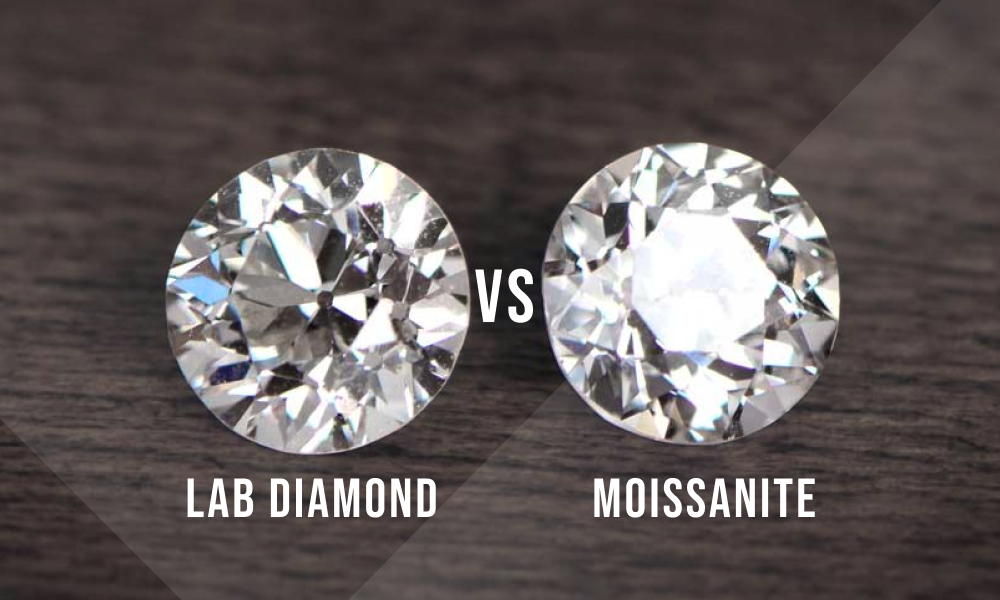There’s nothing worse than your precious jewelry getting tarnished. The metal type, maintenance, and overall usage have a significant impact on your jewelry’s appearance and longevity. But does gold also get wet or will it tarnish if you wear it while showering and swimming?
Whether your gold jewelry gets damaged in the water really depends on the jewelry type, gold purity, water composition, and how you take care of the pieces.
In this article, we’ll explain whether you can get gold wet while also sharing easy maintenance tips to keep your jewelry all sparkly and shiny.
Does Water Damage Gold Jewelry?
Unlike silver, aluminum, copper, and brass, gold is immune to tarnishing. Thanks to its chemical structure, pure gold doesn’t react with oxygen or water easily, meaning that it will neither rust nor tarnish.
While water can’t tarnish gold, the jewelry can still get scratched as gold is a soft metal, especially when compared to other surfaces that you may encounter daily. So, you shouldn’t be surprised if you start noticing light scratches and scuffs right after you first start to wear your gold jewelry.
Another aspect to keep in mind is that gold is water-resistant, but it can still be damaged by harsh chemicals present in water. So, if you’ve noticed that your gold jewelry has tarnished, it’s not because of the gold quality. Rather, you may have exposed the metal to corrosive chemicals, such as chlorine and bleach.
Last but not least, the type of gold jewelry also determines whether it can be damaged by water.
- Gold-plated pieces are neither waterproof nor resistant to chemicals;
- Gold-filled pieces are waterproof and slightly or moderately resistant to harsh chemicals;
- Solid gold pieces are both waterproof and chemical-resistant.
Can You Swim While Wearing Gold?

Generally speaking, it’s safe to swim while wearing gold. Still, taking into account the chemical composition of water is key to protecting your jewelry.
Although pure gold is resistant to chemicals, it’s rarely used in jewelry-making due to its soft nature. Instead, jewelers combine pure gold with other metal alloys to make the material more durable and scratch-proof. However, these types of gold can be gradually damaged by harsh chemicals present in pool water.
If your gold jewelry doesn’t have corrosive metals or gemstones, then you can swim wearing gold jewelry. However, it’s recommended to take off your gold before you swim in chlorinated pool water as even one exposure can damage your accessories.
When it comes to wearing different types of gold jewelry while swimming:
- You should avoid wearing gold-plated jewelry while swimming;
- You can wear gold-filled jewelry while swimming, but it may easily lose luster;
- Solid gold jewelry can be worn while swimming as it won’t oxidize or discolor.
Can You Take a Shower While Wearing Gold
If you’re wondering whether you can wear gold in the shower, then you should consider two main factors. First, the type of your gold jewelry. Second, the type of products you use while or after showering.
In general, gold-plated jewelry shouldn’t be worn in the shower. They will easily tarnish and start to wear down. You should also wait for a few minutes after applying your lotion or perfume to put your jewelry on.
In the case of gold-filled jewelry, you don’t need to take them off before you shower. They won’t wear off if exposed to water, but they are still more prone to different chemicals.
When it comes to solid gold jewelry, they have the highest resistance to water and chemicals, so you can definitely wear them in the shower.
However, no matter what type of gold jewelry you wear, you should still consider the composition of different kinds of soaps, shampoos, and lotions you use. Some chemicals in shower products may react with jewelry, leading to discoloration, tarnishing, and loss of luster.
In a nutshell, basic soaps, shampoos, and lotions are safe for gold-filled and solid gold jewelry. However, avoid showering with your gold if your shower and skincare products include harsh active ingredients, such as retinol, glycolic acid, and salicylic acid.
Most Waterproof Gold Types

If you’re looking for gold jewelry that can be worn while swimming, showering, or exercising, then 18K and 24K gold are the right materials for you. Additionally, 10K and 14K gold jewelry also offer some water resistance, but they are not quite as waterproof as the other two options.
Here’s what you need to know about the most waterproof gold types.
10K Gold
10K gold has a 41.7% gold purity and is the least expensive, but most durable type of gold you can find in jewelry. While it has excellent scratch resistance, its chemical composition makes it the least waterproof gold type.
10K gold is still safe to wear in the shower, but you should consider taking it off to minimize water contact and prolong its shiny appearance.
14K Gold
14K gold has a 58.3% purity, meaning that it’s softer than 10K gold but offers improved water resistance.
But can you shower with 14K gold? Absolutely! Wearing 14K gold jewelry in water is safe, but you should avoid any contact with chlorinated water or harsh chemicals.
Icecartel is specialized in selling 14K gold hip hop jewelry and engagement rings. Our collection includes necklaces, pendants, bracelets, earrings and rings. Shop now!
18K Gold
Continuing with 18K gold, it has a 75% purity, making it even softer and less scratch resistant, yet more waterproof.
The gold content in 18K gold jewelry increases the resistance to water and chemicals, meaning that it’s one of the safest gold types to wear in the shower or while swimming.
24K Gold
Although 24K gold is the most expensive option, it has a 91.7% purity and offers excellent water and chemical resistance.
You can shower and swim with your 24K gold jewelry, but make sure to wipe the pieces with a soft cloth as this type of gold is the softest and especially prone to scratches.
Learn more about all gold karats on from blog: "Introduction to All Gold Karats: 9k, 10k, 14k, 18k, 22k, and 24k"
How to Maintain Gold Jewelry After It Gets Wet?
Maintaining your gold jewelry is quite straightforward, as long as you understand what could potentially damage it. After your gold gets wet, you should just use a soft polishing cloth and gently wipe the jewelry to maintain its luster.
To take proper care of your accessories, you should also take into account whether your jewelry is gold-plated, gold-filled, or solid gold. Here’s what you need to know.
Gold-Plated Jewelry: It’s recommended to keep gold-plated pieces away from water or even moisture. As a rule of thumb, you never want to get your gold-plated jewelry wet. And just in case you do, wipe it with a cloth to dry.
Gold-Filled Jewelry: While it’s generally safe to get gold-filled accessories wet or wear them while showering, salt water and chlorinated pool water should still be avoided.
Solid Gold Jewelry: You can get them wet and wear them while showering or swimming. Solid gold requires little to no maintenance as long as you wipe it with a soft cloth periodically.
Learn more about the types of gold in our blog!
Conclusion
Gold jewelry is renowned for its luster, water resistance, and durability. While other metals can easily get tarnished or worn down, gold is a safe material to wear in the shower or while swimming.
However, gold jewelry can also deteriorate if you ignore its type and purity. In general, gold-plated jewelry shouldn’t be worn in the shower or while swimming, whereas you don’t have to take off your gold-filled or solid gold jewelry.
For the most waterproof gold jewelry, you can opt for 18K or 24K gold. If you’re looking for more durable and affordable options, then choosing 10K or 14K gold is the way to go.
No matter what type of gold jewelry you choose, understanding its durability, water- and chemical resistance, and maintenance requirements is essential for keeping your accessories in top shape.


































































